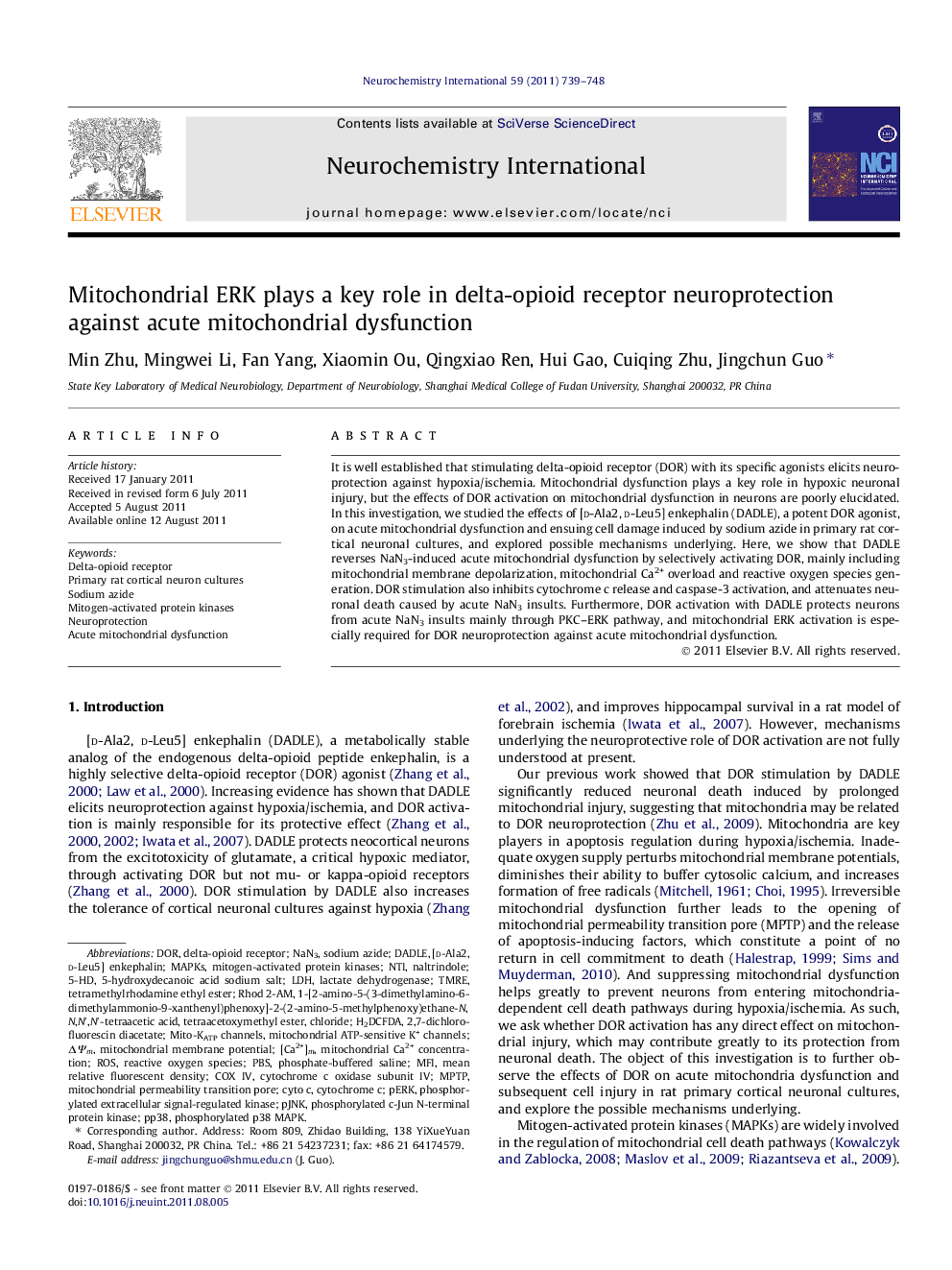| Article ID | Journal | Published Year | Pages | File Type |
|---|---|---|---|---|
| 2200913 | Neurochemistry International | 2011 | 10 Pages |
It is well established that stimulating delta-opioid receptor (DOR) with its specific agonists elicits neuroprotection against hypoxia/ischemia. Mitochondrial dysfunction plays a key role in hypoxic neuronal injury, but the effects of DOR activation on mitochondrial dysfunction in neurons are poorly elucidated. In this investigation, we studied the effects of [d-Ala2, d-Leu5] enkephalin (DADLE), a potent DOR agonist, on acute mitochondrial dysfunction and ensuing cell damage induced by sodium azide in primary rat cortical neuronal cultures, and explored possible mechanisms underlying. Here, we show that DADLE reverses NaN3-induced acute mitochondrial dysfunction by selectively activating DOR, mainly including mitochondrial membrane depolarization, mitochondrial Ca2+ overload and reactive oxygen species generation. DOR stimulation also inhibits cytochrome c release and caspase-3 activation, and attenuates neuronal death caused by acute NaN3 insults. Furthermore, DOR activation with DADLE protects neurons from acute NaN3 insults mainly through PKC–ERK pathway, and mitochondrial ERK activation is especially required for DOR neuroprotection against acute mitochondrial dysfunction.
► DOR stimulation attenuates NaN3-induced acute neuronal mitochondrial dysfunction. ► DOR activation suppresses neuronal injury caused by acute NaN3 insults. ► DOR activation protects neurons from acute NaN3 insults mainly via PKC–ERK pathway. ► Mitochondrial ERK is required for DOR protection against mitochondrial dysfunction.
